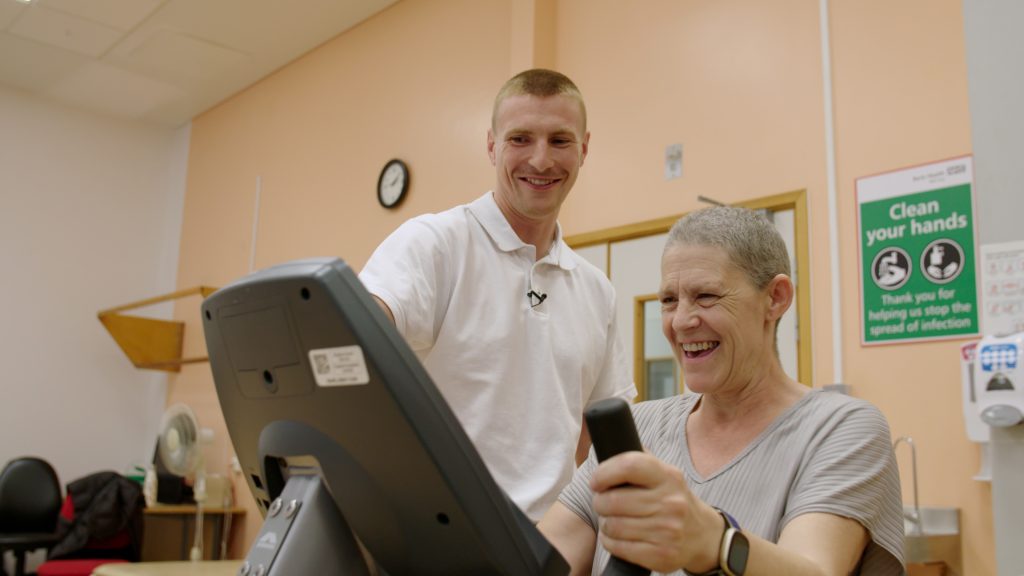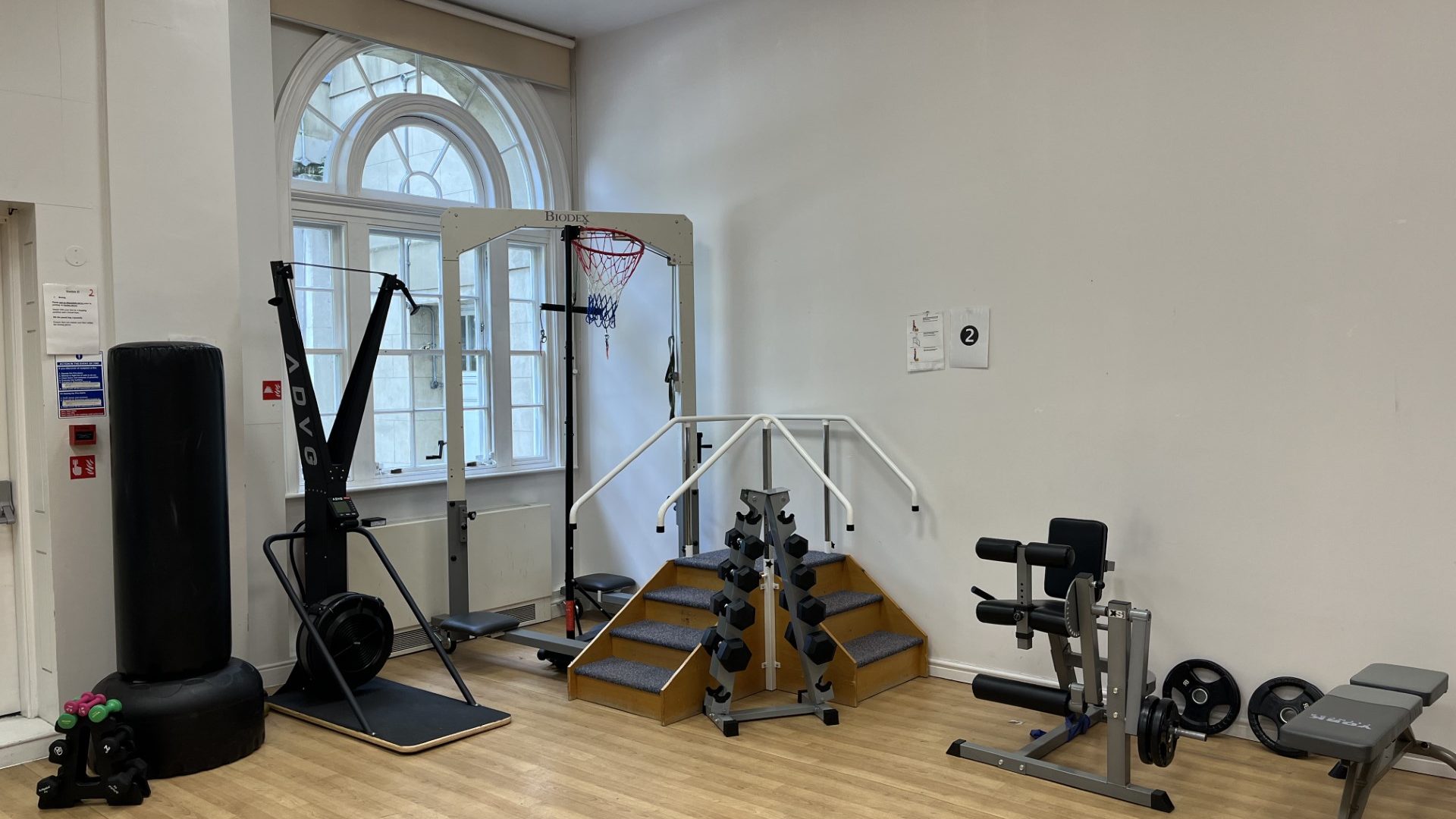Cancer can take a huge physical and psychological toll on a patient’s health, both before and after treatments such as chemotherapy and surgery. As patients progress through their treatment plans, it’s vital that they maintain a healthy fitness level to be eligible for surgery, as well as improving the speed of recovery post-surgery.
Through our Everyday Impact funding, patients across Barts Health have been given access to prehabilitation gym equipment to help them achieve this goal. Prehabilitation involves cancer patients preparing themselves before surgery, with particular focus on diet and weight, physical fitness and mental wellbeing. This can help patients feel more in control of their health and have fewer side effects during recovery.
Physiotherapists and exercise physiologists in all of our hospitals are now able to offer 1-1 supervised exercise sessions with patients, increasing their strength and fitness levels ahead of cancer surgery.
Both patients and staff have already seen the incredible impact the equipment is making on their physical and emotional outlook.
Feeling fit for the fight
When Sam was diagnosed with lung cancer, she attended the prehabilitation centres at both St Bartholomew’s Hospital and Whipps Cross Hospital. She explains how the training was crucial in allowing her to undergo the life changing surgery she needed:
“When I was told I had lung cancer, I was offered robotic keyhole surgery, but you had to be at a certain level of fitness because it’s quite a tough operation. I wasn’t fit enough to be able to go through that process.
I didn’t realise I would enjoy it as much as I did. I felt amazing every time I left – I felt fitter and fitter, like I was really preparing for a fight.”

Sam, former prehabilitation patient
“They didn’t just keep my body strong, they kept my head strong, and I could never thank them enough for that.”Sam, former patient
Some patients have even described the programme as life-changing. One patient commented: “I desperately needed surgery but without these exercises there’s no way my body could take it. Without this programme I would still have lung cancer.”
Changing perceptions around fitness and cancer
There is often a perception that cancer treatment means losing weight and fitness. Alice Finch works as a Cancer Prehabilitation Physiotherapist at St Bartholomew’s Hospital and applied for the Everyday Impact funding to buy the equipment. She explained that exercise is extremely beneficial during treatment and for recovery.
“A lot of people think that if you’ve got cancer and you’re having treatment, you’re inevitably going to lose weight, lose your fitness. What we know from experience is that exercising during this period can reduce those risks, as well as cancer related fatigue, nausea and vomiting.”
The service has been game changing and means that Alice and her team can offer the best possible pre-operative exercises to their patients.
Thank you to an amazing team
Trish is a former patient has been supported by the prehabilitation programme whilst going through chemotherapy. She has found it amazing, not just for her physical health but also her mental health. She feels positive about her future, thanks to the programme and the team.
“All the team have been an incredible support to me. Not only have they helped me increase my strength and fitness, but they have also been a supportive ear to help me through this tough time.”
"I am fitter, mentally and physically stronger and I’ve had minimal side effects due to the incredible work that they do. Their encouragement and sensitivity has made my chemotherapy journey a whole lot more bearable!”Trish, patient
Hear more about the Barts Health Prehabilitation programme in the video below, which was created and funded by the North East London Cancer Alliance (NELCA).


